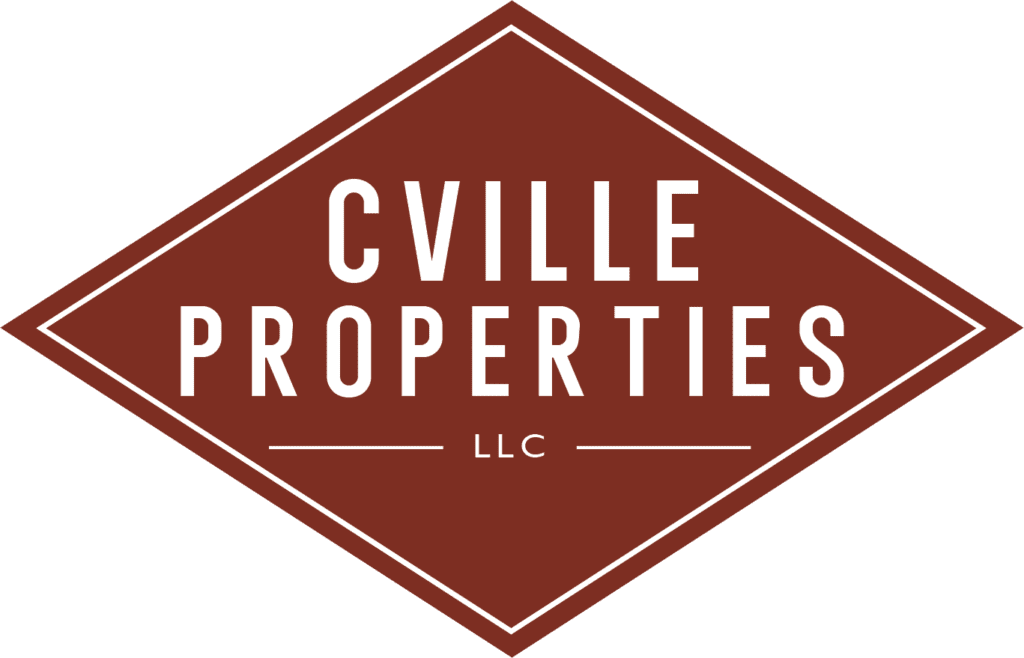Buying an investment property can be an excellent way to begin building your wealth. If approached wisely, real estate investments can offer the benefits of both passive income and long-term appreciation. As active investors ourselves, we founded CVille Properties to be the primary vehicle for managing our real estate portfolios. Now we use the systems we built for ourselves to help owners and investors create sustainable real estate wealth. If you’re considering buying your first investment property, the following are some key considerations that we recommend exploring.
Financial Readiness
Before investing in real estate (or any other asset class), it is critical to have your financial house in order. There are a wide array of opinions on what constitutes “financial readiness.” Before taking the leap, you’ll need to determine what readiness means for you and your family. If you don’t have one, consider consulting a financial advisor you trust. They can provide personalized advice on whether investing in real estate aligns with your goals, lifestyle and situation.
With or without a professional, assessing your readiness will include:
- Understanding your overall risk tolerance
- Your current / projected cost of living
- Your debt-to-income ratio (How much debt can you safely take on?)
- Do you have equity to leverage? (And how much is wise?)
- Do you maintain an emergency fund that covers 3-6 months of expenses?
- What are your other retirement planning goals?
Real-estate investments carry a number of tax implications that differ from other investments. It is important to understand the nuances of how real estate income is treated at tax time. We highly recommend consulting with an accountant who is well versed in real estate to be sure you take advantage of the various tax benefits associated with this asset class.
Investment Goals
Like readiness, everyone has different investment goals. Common goals include:
- Increasing monthly cash flow
- Income replacement
- Long-term wealth building
- Portfolio diversification
- Legacy planning (inheritance)
- Owning a vacation property
Whether you are looking to increase your monthly income or are purchasing a long-term asset that you hope to pass down to your children, understanding your priorities will help inform your overall investment strategy.
For example, if your primary goal is cash flow, you might focus on properties with high rental demand and income potential. If long-term wealth building is your aim, properties in appreciating areas might be more suitable. Regardless of the asset class you choose to invest in, it is imperative that your overall strategy aligns with your individual goals.
Choosing the Right Type of Property
Like stocks, there are numerous avenues for investing in real-estate. There are also a number of property types to consider, each with its own unique benefits and challenges.
Commercial? Or Residential?
Investors looking to purchase their first property will naturally lean more towards residential asset types. The financing, routine expenses, value-add potential, etc. will be similar to experiences with their primary residence. Mixed-use and commercial properties can offer greater income potential and value-add opportunities but carry some unique differences. For starters, the lending process for these types of properties is quite different from a residential rental. Working with and attracting commercial tenants and the types of expenses associated with these properties are also unlike those associated with a single family home.
Although it’s certainly possible to begin your real-estate investment journey with mixed use or commercial asset types, we strongly recommend new investors start with more familiar residential rentals. Existing multi-unit or single family properties with proven viability are often a safer bet for new investors. Properties with a proven track record as a rental can help to reduce the initial investment risk.
House-Hacking Strategy
House-hacking is an excellent strategy for first-time investors. This involves buying a multi-unit property or one with an accessory apartment. With this approach, you can live in one unit while renting out the other, reducing your cost of living and gaining rental management experience.
This approach is particularly beneficial for young families or professionals looking to kick-off their real estate portfolio. As Jesse discussed on the Real Estate Investing Abundance podcast, house-hacking allows you to invest in real estate without the full financial burden of a separate investment property. It is a tried and true way to start building a real estate portfolio.
Focus on the Numbers
In purchasing any investment, it’s critical to know your numbers. Analyzing the projected income and expected expenses of a property is the first step in evaluating its viability as a rental. Ensuring the property is in good condition and that major building systems (HVAC, roofing, plumbing, etc.) have been recently updated will help to minimize big ticket expenditures that can quickly erode your profits. Assess the overall risk vs. reward of any investment and ensure you’re comfortable with the potential challenges and returns, especially as you move into more complex asset types.
Most importantly, always ensure the property has multiple viable exit strategies. For example, avoid properties that are suitable only for short-term rentals, as this may limit your options. Banking solely on appreciation or market conditions can also make a good deal go bad quickly. Look for properties in desirable areas with good appreciation potential that can lend themselves to multiple forms of rental income (e.g. short-term and long-term). A property that is a viable investment via multiple strategies can greatly reduce your overall risk.
Building Your Investment Team
Successful property investment requires a strong team:
Realtor: Choose a realtor with experience in investment properties and second homes. They should be comfortable working with investors and understand the analytical approach required.
Accountant: An accountant can help identify tools to properly track investments and identify tax advantages. This will be increasingly important as your portfolio grows.
Legal Advisor: Understanding tenant-landlord laws, local zoning regulations, and asset protection is crucial. A legal advisor can help you navigate these complexities and help you avoid costly mistakes.
Property Manager: Decide whether to self-manage or hire a property manager. Just because it may change your bottom line doesn’t mean it won’t help you meet your goals. An experienced property manager with investment experience can help you assess the viability of a property as a rental. Property managers know the rental rates and demand for the areas they operate and can provide valuable insight into the types of tenants a property will attract.
When the Market is Right
Ultimately, the market conditions will need to be favorable for buying and renting out a property. Be patient and keep an eye on local real estate trends, rental demand, and economic factors.
Real estate investing can be a rewarding venture if approached with careful planning and strategic decision-making. At CVille Properties, we’re here to consult with you when you’re ready to make your next big move. Contact us today to learn more about how we can partner on your next investment in the Catonsville area.

